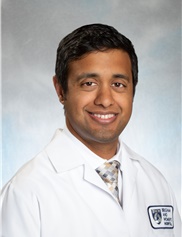Grants Funded
Grant applicants for the 2024 cycle requested a total of nearly $3 million dollars. The PSF Study Section Subcommittees of Basic & Translational Research and Clinical Research evaluated more than 100 grant applications on the following topics:

The PSF awarded research grants totaling over $650,000 dollars to support more than 20 plastic surgery research proposals.
ASPS/PSF leadership is committed to continuing to provide high levels of investigator-initiated research support to ensure that plastic surgeons have the needed research resources to be pioneers and innovators in advancing the practice of medicine.
Research Abstracts
Search The PSF database to have easy access to full-text grant abstracts from past PSF-funded research projects 2003 to present. All abstracts are the work of the Principal Investigators and were retrieved from their PSF grant applications. Several different filters may be applied to locate abstracts specific to a particular focus area or PSF funding mechanism.
Closed-loop CCL22 Expression to Prevent Allograft Rejection
Shailesh Agarwal MD
2024
Brigham and Women's Hospital, Inc.
Combined Pilot Research Grants - ASRM
Fat Grafting, Tissue Engineering
Project Summary: Vascularized composite allotransplantation (VCA) presents an enormous clinical reconstructive opportunity for individuals who have experienced significant musculoskeletal trauma or burn injuries. However, immunologic tissue rejection presents a major barrier to broad clinical adoption of VCA. Traditional immunosuppression therapy including steroids and calcineurin inhibitors present substantial long-term risks including metabolic disorders leading to diabetes, hyperlipidemia, poor wound healing, and a predisposition to developing post-transplant malignancies. While immunoreactive T-cells mediate acute rejection, another subpopulation of T-cells known as regulatory T-cells (Tregs) possess potent immunosuppressive qualities. Tregs have received significant attention as a potential therapy to prevent allograft rejection. This function is believed to be mediated in part through inactivation of immunoreactive cells and secretion of immunosuppressive cytokines. Because of these findings, strategies have evolved to augment Treg recruitment to the allograft. Delivery of C-C motif chemokine ligand 22 (CCL22), a cytokine which mediates Treg recruitment, has emerged as a promising strategy. Delivery of CCL22 via viral gene delivery or microparticles has been shown to prevent or delay graft rejection. However, these strategies face substantial limitations including the risk of systemic immunologic responses to viral gene therapy, and the eventual depletion of CCL22 reservoir with microparticle delivery. Through support from the PSF, my lab has developed an autologous cell therapy composed of adipocytes which have been genetically-modified in vitro to express and secrete CCL22. Using the CCL2 promoter to drive expression, we have designed and validated a piggyBAC transposon plasmid which enables CCL22 production in response to acute inflammation (Promoter(CCL2)-CCL22). In this single-Aim proposal to be performed within the pilot award budget, we will deliver adipocytes modified with the piggyBAC Promoter(CCL2)-CCL22 plasmid into a model of skin allotransplantation, and examine for adipocyte engraftment, CCL22 production, Treg recruitment, and acute rejection.
Impact Statement:
Rejection presents a major barrier to broad clinical adoption of vascularized composite allotransplantation. Immunosuppressive regulatory T-cells (Tregs) have garnered interest as a therapeutic opportunity to prevent rejection. CCL22 has been shown to recruit Tregs to skin and composite allografts, delaying or preventing rejection. Here, we develop a novel cell therapy composed of autologous adipocytes modified with stable genomic integration of the Ccl22 transgene, providing a durable local source of CCL22 upon engraftment. We will modify these adipocytes to enable regulated CCL22 secretion using inducible or niche-responsive expression systems. Upon completion, we will have engineered, validated, and deployed a novel autologous cell therapy which protects allografts from rejection.
 Dr. Shailesh Agarwal is an Assistant Professor of Surgery at Harvard Medical School and Associate Surgeon in the Division of Plastic Surgery at the Brigham and Women's Hospital. Dr. Agarwal completed his residency in plastic surgery at the University of Michigan from 2010-2018. During that time, he also completed a 2-year post-doctoral research fellowship studying pathologic wound healing with Dr. Benjamin Levi. Dr. Agarwal completed his microsurgical fellowship at the University of Chicago where he performed microsurgical reconstruction including lymphovenous bypass and vascularized lymph node transfer for patients with secondary lymphedema. At the Brigham and Women's Hospital, Dr. Agarwal performs both microsurgical and implant-based breast reconstruction, lymphedema surgery with vascularized lymph node transfer, LYMPHA for lymphedema prevention, and gender-affirming top and bottom surgery. His laboratory is focused on studying the underlying biology of lymphedema fibroadipose tissue deposition, and in developing adipocyte-based therapies for the local release of therapeutic biologic agents including peptide and microRNA.
Dr. Shailesh Agarwal is an Assistant Professor of Surgery at Harvard Medical School and Associate Surgeon in the Division of Plastic Surgery at the Brigham and Women's Hospital. Dr. Agarwal completed his residency in plastic surgery at the University of Michigan from 2010-2018. During that time, he also completed a 2-year post-doctoral research fellowship studying pathologic wound healing with Dr. Benjamin Levi. Dr. Agarwal completed his microsurgical fellowship at the University of Chicago where he performed microsurgical reconstruction including lymphovenous bypass and vascularized lymph node transfer for patients with secondary lymphedema. At the Brigham and Women's Hospital, Dr. Agarwal performs both microsurgical and implant-based breast reconstruction, lymphedema surgery with vascularized lymph node transfer, LYMPHA for lymphedema prevention, and gender-affirming top and bottom surgery. His laboratory is focused on studying the underlying biology of lymphedema fibroadipose tissue deposition, and in developing adipocyte-based therapies for the local release of therapeutic biologic agents including peptide and microRNA.